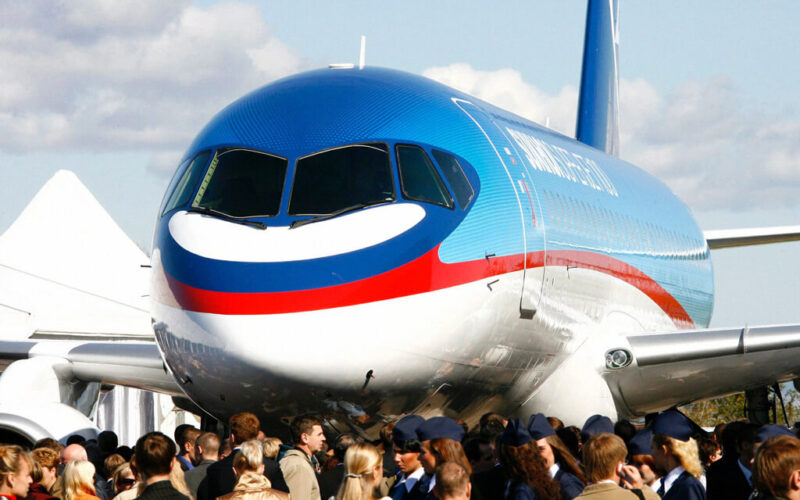A year after the ill-fated Aeroflot Superjet-100 flight from Moscow to Murmansk, the accident is still surrounded by the veil of speculation and controversy. What happened on May 5, 2019 – was it the aircraft defect, the lack of training for the flight crew, or a series of pilots’ mistakes that had led to the crash?
While the investigation still awaits its final results, the preliminary report indicated it was the SSJ-100 captain’s mistakes that led to the fatal crash-landing. Now, the captain, Denis Evdokimov, spoke up for the first time, sharing his account of events in an interview with Russian media Lenta.
Pilot accused of violations, first reports prove otherwise
Hit by lightning shortly after takeoff, the SSJ-100 aircraft was heading towards Murmansk Airport (MMK) from Moscow Sheremetyevo Airport (SVO), when it lost all radio communication. As pilots attempted an emergency landing, the back of the aircraft ignited, resulting in the deaths of 41 passengers out of 78 people on board.
The publication on May 17, 2019, by Russian state news agency RIA, pointed to the findings that proved a pilot mistake. By an array of examples, starting from the excess of an aircraft landing mass to not releasing brake flaps during the emergency landing, it showed that pilots had not followed standard landing procedures.
The carrier Aeroflot, however, shed the light to a different narrative, denying all information about possible violations by the flight crew. That version was partially supported by the Interstate Aviation Committee (IAK) on June 5, 2019, when the organization had issued recommendations to the design of the aircraft as well as training for pilots.
In December 2019, the Investigative Committee accused the captain, Denis Evdokimov, of violating traffic safety and operation of transport vehicle laws. The captain is currently staying on his own recognizance, pleaded not guilty.
Human mistake or manufacturer’s fault?
In his interview with Lenta, the captain of the 1492 Aeroflot flight Denis Evdokimov said that the pet-project of Russian aircraft manufacturer Sukhoi had failed to comply with the standards in the first place.
“If the manufacturer had finished the aircraft on time, aviation incidents of this kind would not have been repeated,” Evdokimov claimed. The captain believes it was the faulty Superjet 100 design that had an impact on aircraft performance and safety.
Emerging repeatedly, the Superjet defects had first shown up at the International Paris Air Show in 2012 and were followed by several more cases in 2018 (flight tests at Zhukovsky International Airport and during landing in Yakutsk), according to the pilot. All of those cases were similar, united by the same defect: the fuel tank was damaged by the undercarriage, resulting in a fuel leak. Only by pure luck, none of the incidents had led to casualties, reckons Evdokimov.
In January 2020, deputy chairman of the Investigative Committee Igor Krasnov called the “unlawful actions” of Evdokimov the direct cause of the Aeroflot plane crash. The chairman indicated that the rough landing had been performed with excessive speed. That and vertical overload made the plane bounce three times and hit the runway, breaking the main landing gear, which consequently led to the ignition of the fuel.
Given the plane was bouncing three times, carrying out a go-around after the first time it happened could be an option, as suggested by the instruction. Why didn’t the captain go in for it?
“The go-around was impossible due to the aircraft’s reaction to the control actions. An increase in the engines’ operating mode to the level of take-off gives a very strong increment in the converting moment, which, if the reaction to the control action had been the opposite, would have led to a nose buried into the runway or a fall on the tail. In both cases, I’m sure everyone would have died…”, Evdokimov answered.
Weather conditions: was the lightning strike a pivot moment?
When asked about the importance of meteorologic conditions of the case, Evdokimov admits that lightning was not a direct cause of the accident. However, it did disable the remote control system of the Superjet.
“The remote control system on the Superjet is completely electric, that is, it does not have redundant mechanical communication between the steering controls”, explains Evdokimov. “Neither the investigation authorities nor the IAC was interested in the fact that atmospheric electricity had affected the aircraft, and there is simply not a word about this in the case file, except for the testimonies of passengers and crew members”.
The captain expressed his deep condolences to people who lost their relatives and who suffered in the disaster.

